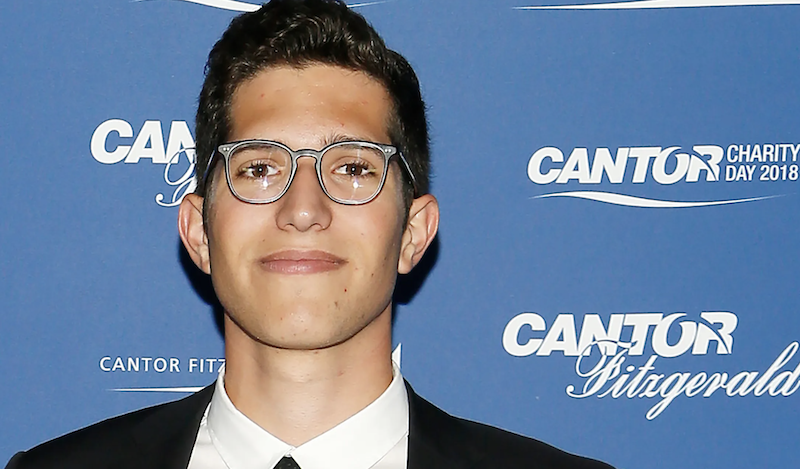The Crypto High-Stakes Gamble of the Commerce Secretary's Son
In April 2025, Bitcoin's price stood at $93,700, and the market was like a spring pond struck by a massive stone, creating rippling waves. Trump's executive order in March required the Treasury to submit a feasibility report on strategic Bitcoin reserves by the end of April. Meanwhile, Brandon Lutnick, the young helmsman of Cantor Fitzgerald and son of U.S. Commerce Secretary Howard Lutnick, was collaborating with SoftBank, Tether, and Bitfinex to establish a $3 billion Bitcoin investment fund called 21 Capital. This was not an ordinary investment project, but a bold adventure under his father's policy halo. Why did 21 Capital choose to set sail at this moment? How does Brandon's involvement add chips to Bitcoin's "national strategy"? Let's delve into the convergence of Wall Street and the crypto market.

Cantor Equity Partners: From Wall Street to Crypto Frontier
Brandon Lutnick's Ambition
Within Cantor Fitzgerald's massive fleet, Cantor Equity Partners is the new star under Brandon Lutnick's helm. As the son of Commerce Secretary Howard Lutnick, Brandon not only inherited his family's financial acumen but also leveraged his father's influence in the Trump administration. Howard, a Wall Street legend who led Cantor's rebirth after 9/11, has recently openly supported Bitcoin, calling it the "future of finance". In January 2025, Brandon raised $200 million through Cantor Equity Partners' SPAC, targeting high-growth assets. Now, he has set his sights on Bitcoin, aiming to create a publicly traded Bitcoin holding entity through 21 Capital, challenging MicroStrategy's 530,000 Bitcoin empire.
[The translation continues in the same manner for the rest of the text, maintaining the specified translations for specific terms like Bit, Block, Tether, USDT, etc.]Big Picture: From Speculation to Geopolitics
21 Capital may mark a turning point for Bit. If the United States establishes a strategic reserve, it might start with a small scale (210,000 Bit), and then expand through Federal Reserve profits or tariff revenues (like Trump's sovereign wealth fund of $8 billion to $20 billion). Other countries might follow suit: Bhutan has already started green mining, China is handling confiscated crypto assets, and Japan is testing waters through SoftBank. 21 Capital's international funding (US, Japan, Hong Kong) suggests that Bit may transform from a speculative asset to a geopolitical tool, reshaping the global financial landscape.
Cantor Equity Partners, through 21 Capital's $3 billion consortium, like an experienced captain, is leading Wall Street into new crypto waters. Its partners - Tether, SoftBank, Bitfinex - have injected momentum into the journey, while the Treasury Department report at the end of April might be the lighthouse determining the direction. For investors, this is a moment of both opportunity and risk: the implementation of strategic reserves could drive Bit prices up, but regulatory uncertainty or trading volatility could create waves. With only a week left until the report deadline, the "national strategy" story of Bit is accelerating.







